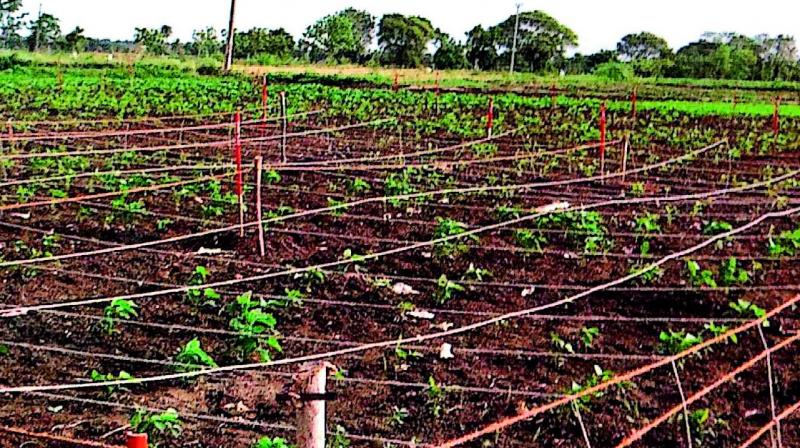National bird turns an eyesore for Telangana farmers
Peafowl has become an undeclared pest damaging crops.

Hyderabad: It may be the National Bird and a beautiful sight to behold, but the peacock and the peahen are an unmitigated nuisance for farmers in Telangana.
According to the Vertebrate Pest Management Division at Professor Jayashankar Telangana State Agricultural University in Rajendranagar, peafowl causes major crop damage in Telangana and parts of Andhra Pradesh during sowing and ripening seasons, second only to monkeys and wild boars.
The government had issued culling orders for wild boars, but the peacock being the national bird cannot be officially declared a pest and cullied. Principal Scientist V Vasudeva Rao, who heads the All Indian Network Project on Vertebrate Pest Management, said that conservation measures in the two Telugu states have led to an explosion in the peafowl population.
“They are coming out of their natural habitats and living in agricultural landscapes. They are causing enormous damage to crops such as maize, groundnut, bajra and sorghum, and paddy, sunflower and vegetables during maturity, Mr Rao said. He said the birds do more damage at the crop sprouting stage (around 42-70 per cent), than at the crop ripening stage (15-35 per cent) in infested areas. He said regular complaints are coming from rain-fed areas in Telangana where there is multi- crop diversity.
The Vertebrate Pest Management Division has developed a simple method to deter the peafowl from damaging the crop. “Use of physical barriers made of jute or coconut ropes reduces peafowl damage. During the sprouting of the crop, jute ropes are fixed around the crop with the help of pegs at one or two metre intervals. The rope is tied 30 cm above the ground in a chequered pattern, forming squares of 1x1m to prevent entry of peafowl into the fields,” Mr Rao said.
This method has been tested with different crops at various locations and has proved effective, reducing damage by 80 to 95 per cent. The process costs around Rs 1000 per acre (Rs 700 for the jute rope and Rs 300 for labour).

